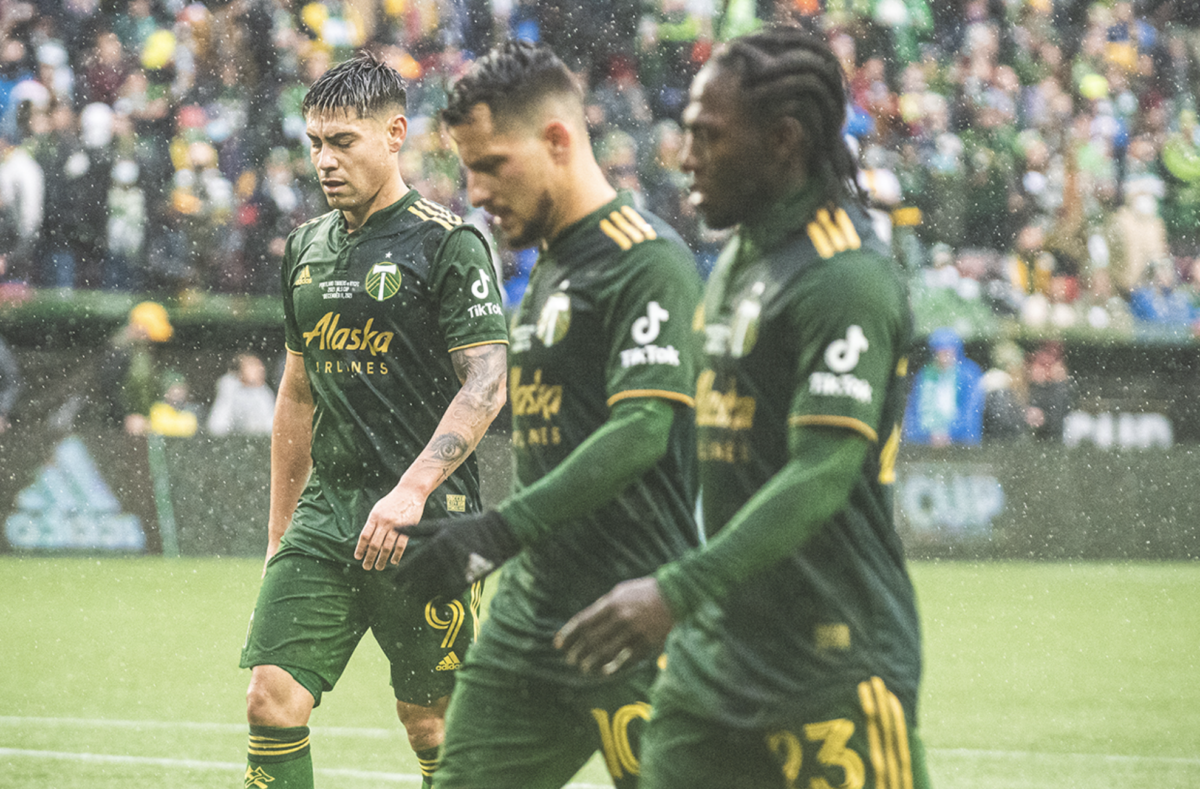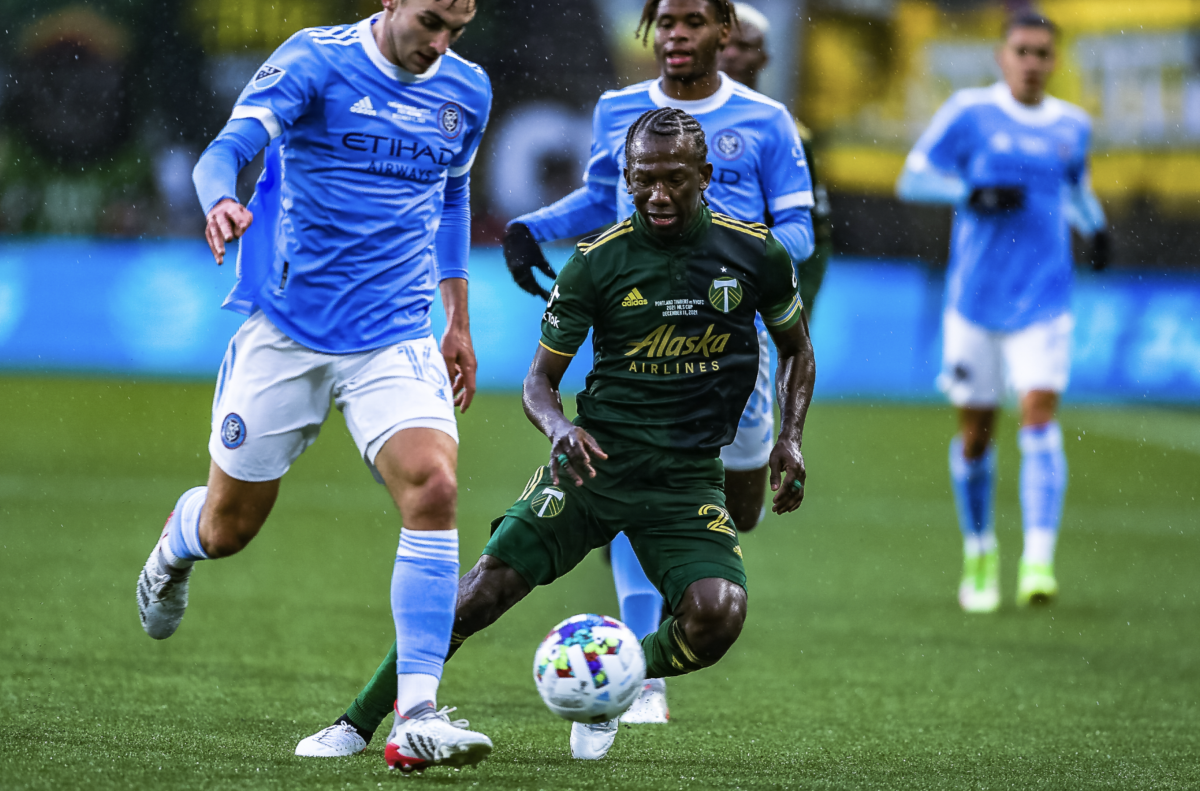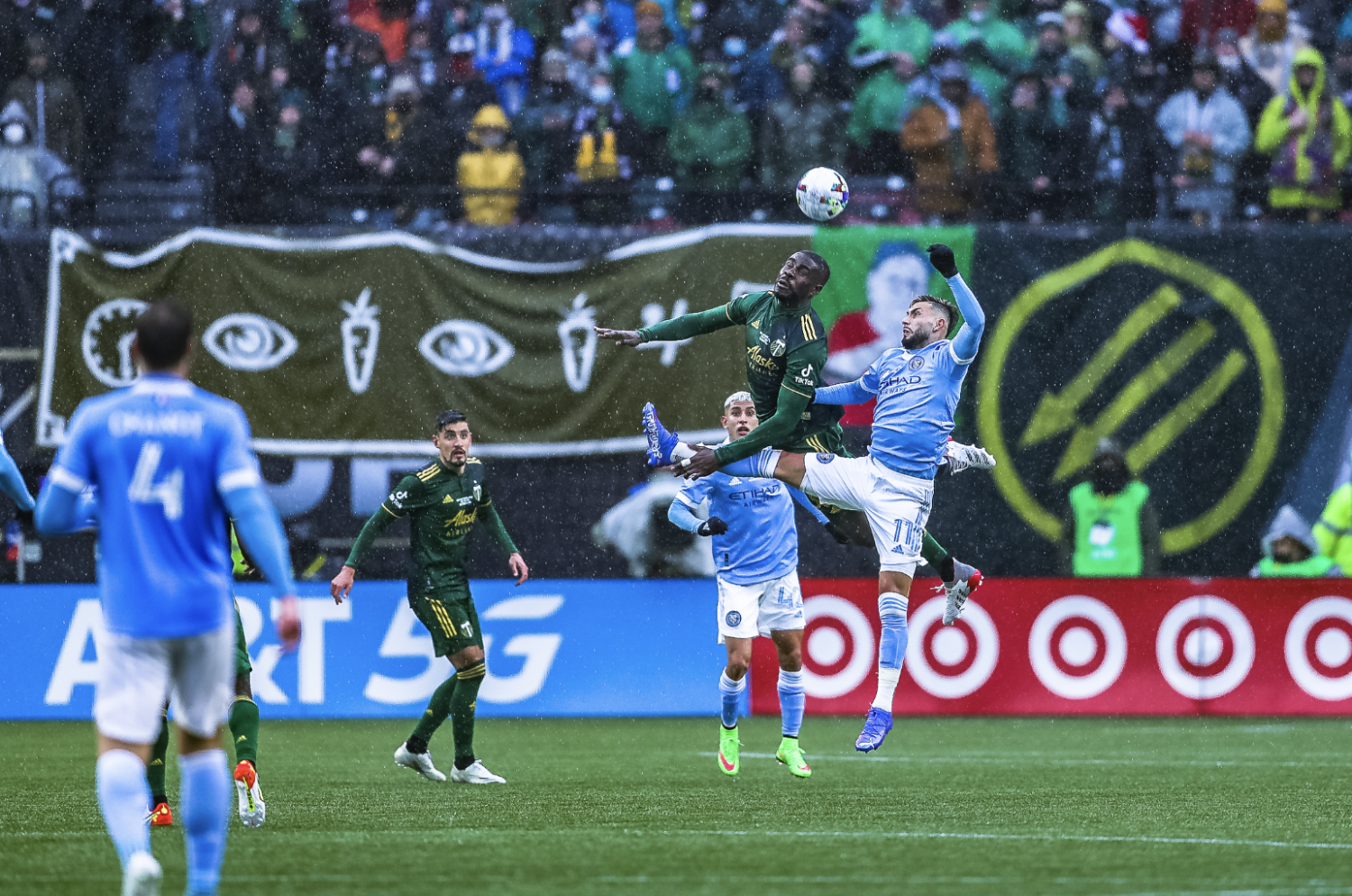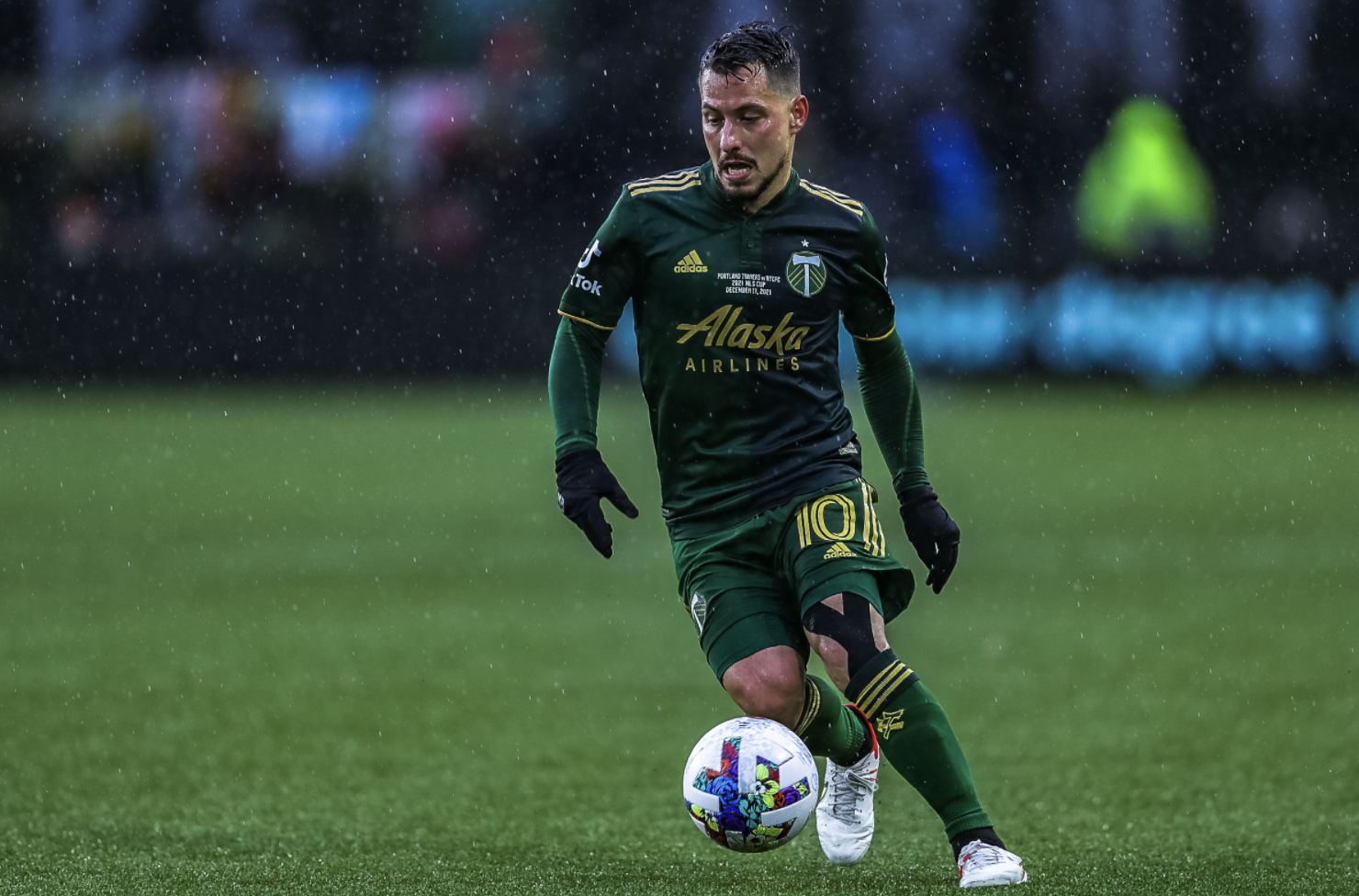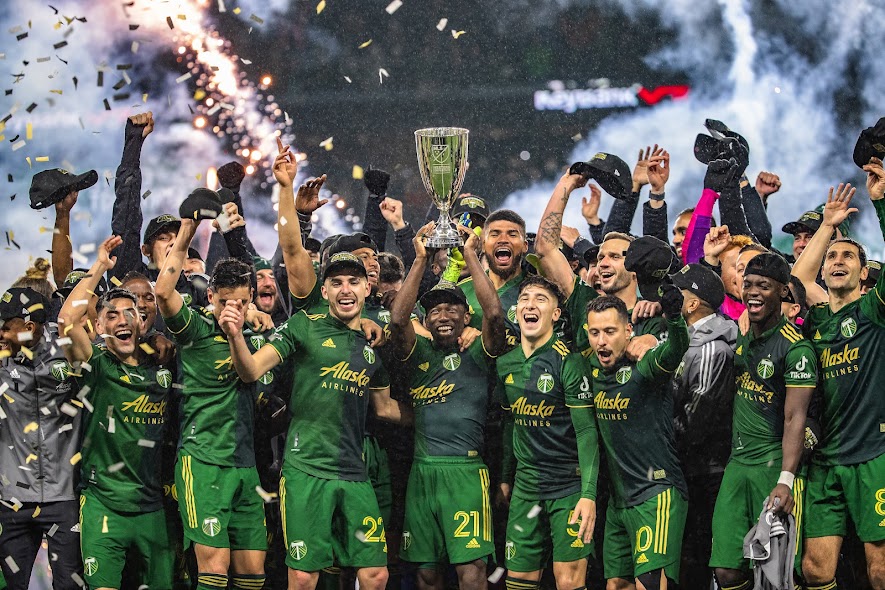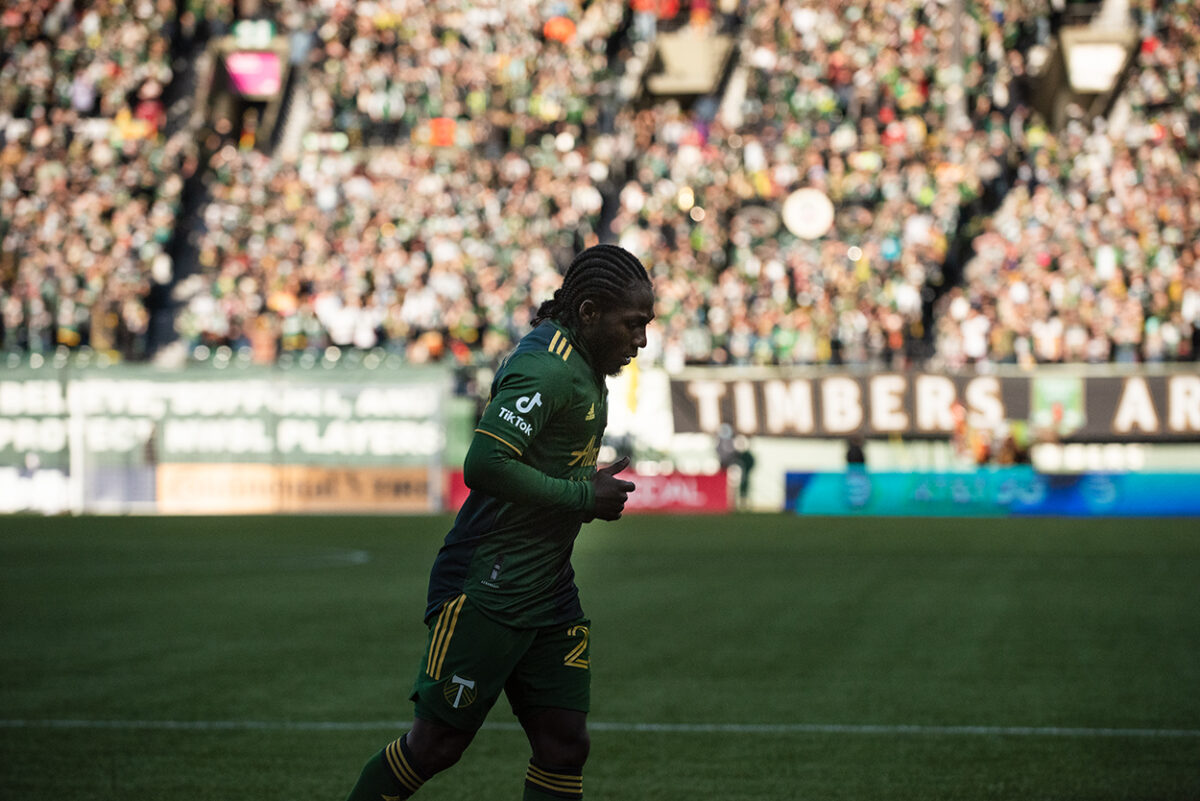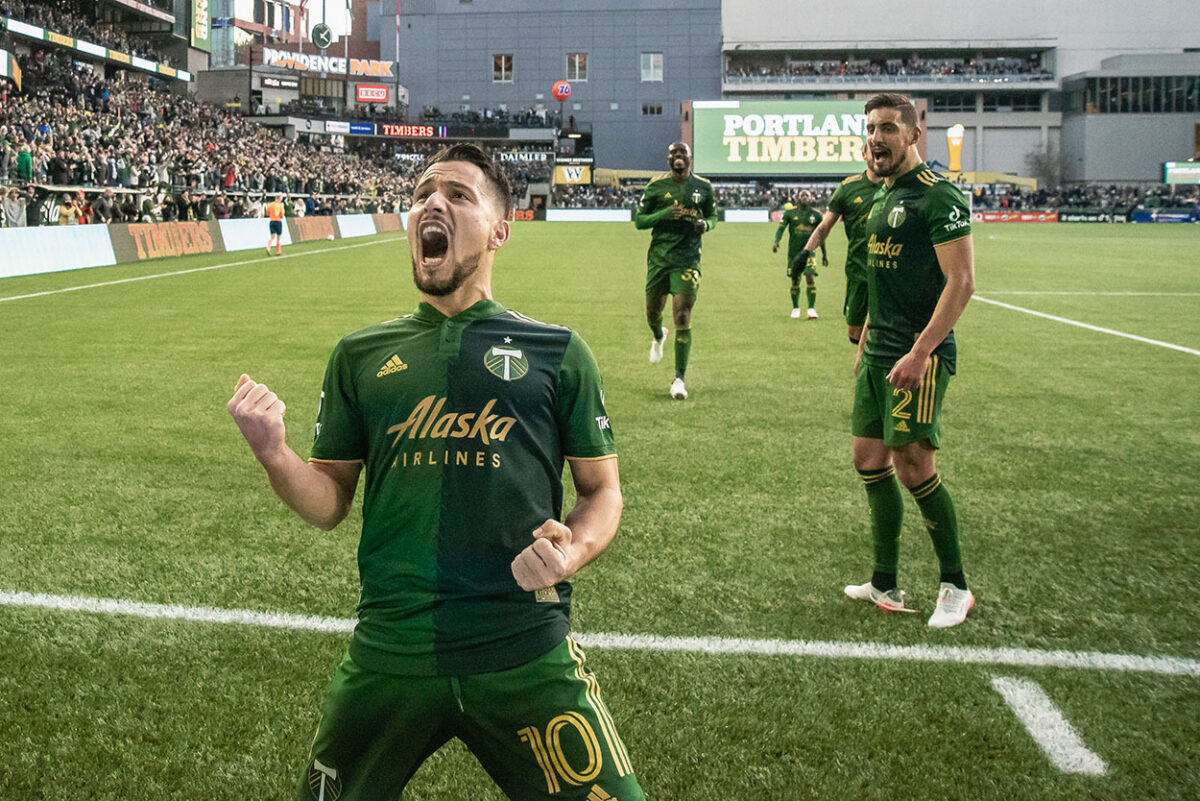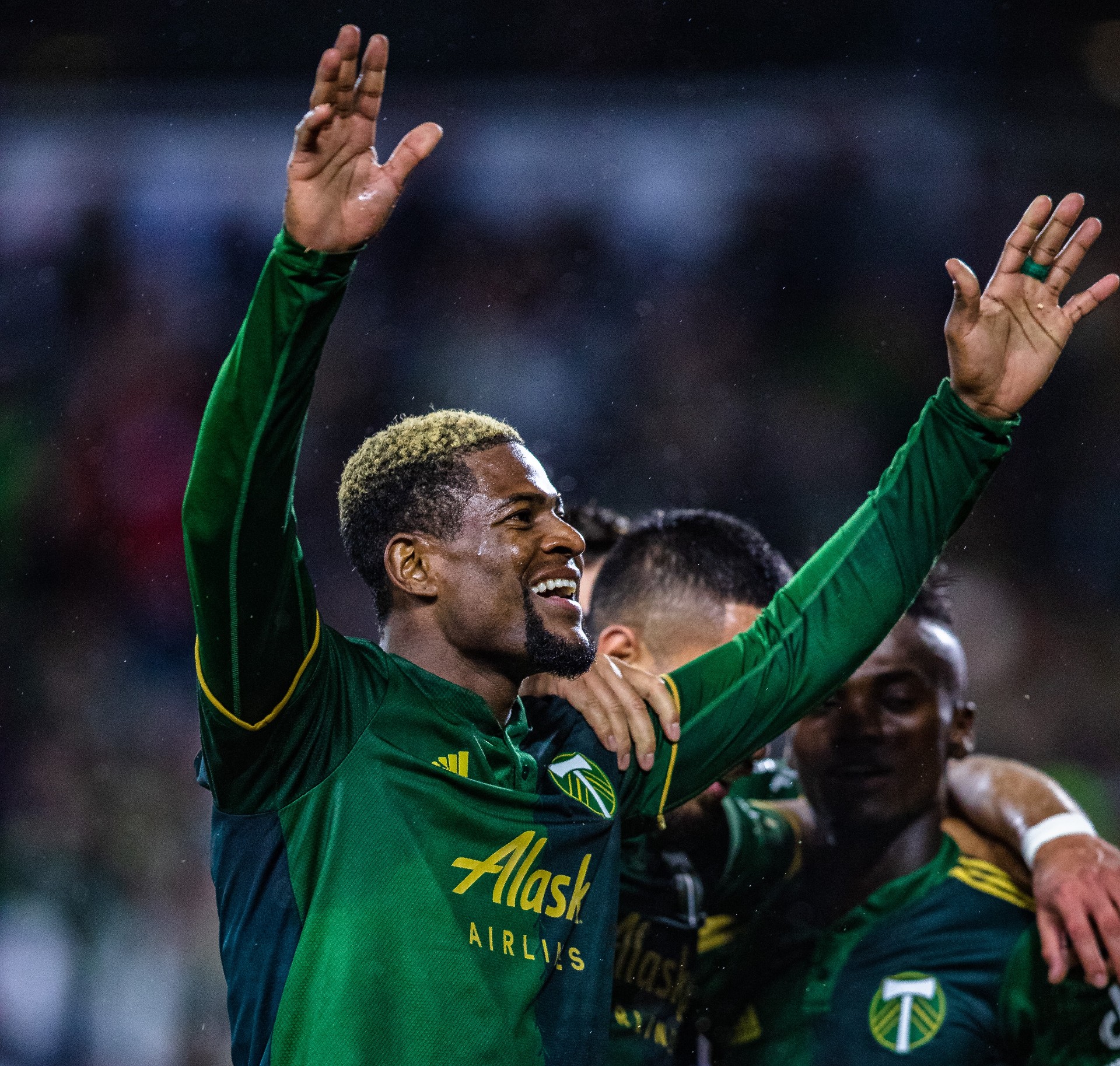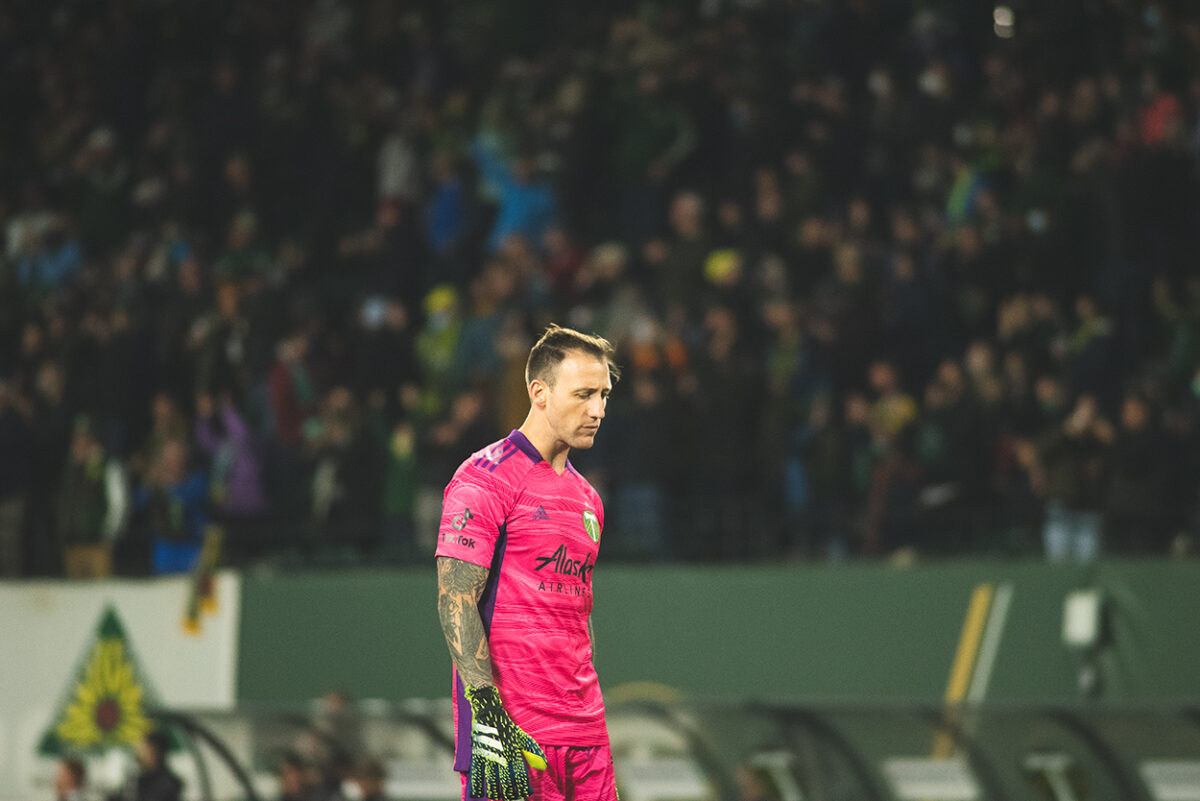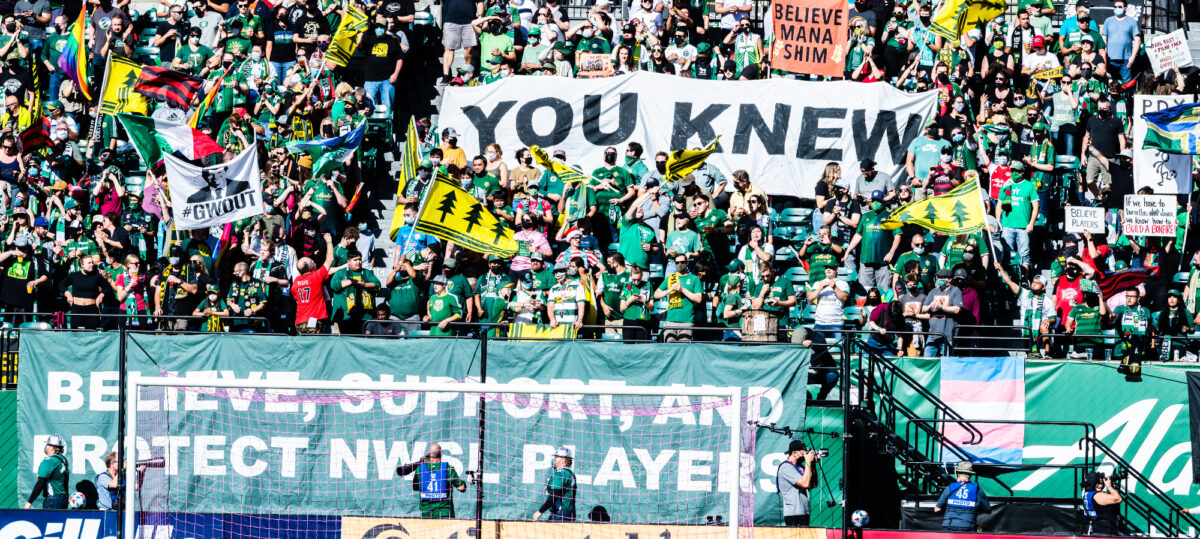With just days to go until the start of the 2022 MLS season, the Western Conference promises to be as competitive as it’s ever been before.
For the first time, the West is up to 14 teams — adding a quality side in last year’s third-place Eastern Conference finisher, Nashville — as expansion side Charlotte FC take their place in the East. (There is no expansion side in the Western Conference this year.)
Several of the West’s worst teams last season, such as Houston and Dallas, have splashed out club-record transfer fees on new strikers. As the Timbers get set to defend their Western Conference crown, there will likely be few easy games.
1. Seattle Sounders
That’s right. After their humiliating exit from the playoffs last year, the Sounders enjoyed an outstanding offseason.
There’s a sparkling new training facility and a rebrand centered around the club’s 50th anniversary underway. Seattle signed the best player on the team that eliminated them last season in Albert Rusnak. They inked several stars to contract extensions. And they brought several incredibly important depth pieces back.
Brian Schmetzer’s teams have not always been all that good in the regular season, but — given Seattle’s CONCACAF Champions League ambitions and the depth on this roster — this year may well be different.
The front six, which includes five internationals and an ace Brazilian central midfielder, is probably the league’s best unit. The back five isn’t far behind.
If Seattle has had an obvious flaw in recent years, even at full strength, it’s that they could be beat in transition and often played methodically. That necessarily hasn’t changed — but on their day, this team is going to take some beating.
Lineup: Frei, Nouhou, Arreaga, Gomez Andrade, A. Roldan, C. Roldan, J. Paulo, Rusnak, Lodeiro (C), Morris, Ruidiaz
2. Los Angeles FC
LAFC’s regression in the final two years of Bob Bradley’s tenure at the club felt both unnecessary and disappointing. Unnecessary because so many of the club’s personnel moves didn’t make sense, and disappointing because the 2019 team was so tremendous to watch.
Now, the club has turned the page entirely from its hugely successful first era. Bradley is in Toronto; Eduard Atuesta and Diego Rossi are overseas; and new boss, Steve Cherundolo, has a bevy of new recruits to plug in around mainstays like Carlos Vela and Latif Blessing.
Interestingly, many of those new players came from within MLS, a marked departure from LAFC’s player acquisition strategy the last several years. Kellyn Acosta, Ryan Hollingshead, and Maxime Crepeau have played in and won a ton of MLS games. Given the issues LAFC had gutting out wins last season, the team should benefit from their experience.
At no point during the last two years did the underlying numbers ever not like LAFC, and it feels like even a touch more composure and toughness could put them on track to have an excellent year. If Cherundolo can adapt quickly to the league, they’ll be contenders again.
Lineup: Crepeau, Hollingshead, Mbacke, Murillo, Escobar, Acosta, Cifuentes, Blessing, Rodriguez, Vela (C), Arango
3. Nashville SC
Nashville makes the move from the East back to the West for their third year and first in a new soccer-specific stadium. The travel will be grueling, and the lack of games against their geographic rivals in the South seems like a missed opportunity.
They’ll likely shift back to the East when St. Louis joins next season, but for now Nashville should have the quality to make a serious impression on the West.
This team easily could have advanced to the Eastern Conference Final last year, and they strengthened in key areas in the offseason — adding MLS veterans like Sean Davis and Teal Bunbury to compete for minutes in the spine of the team.
Nashville isn’t exactly thrilling to watch, and they won’t blow many teams away, but they’re very difficult to play against, very good defensively, and in every game have two of the best players on the field with Walker Zimmerman and Hany Mukhatar.
They still may be one or two attackers short when it comes to competing with the league’s very best. But they’re built for consistent regular season success, no matter what conference they’re in.
Lineup: Willis, Lovitz, Romney, Zimmerman, Maher, Muyl, Godoy, McCarty (C), Leal, Mukhtar, Sapong
4. Portland Timbers
Last year, on the field anyway, it was the tale of two seasons for the Timbers: very, very poor through mid-August, and very, very good after.
That was almost enough to win the club’s second MLS Cup, and definitely enough to give the its leadership faith that the Larrys Mabiala/Diego Chará/Sebastian Blanco core has another title run in them with just a few reinforcements.
There is good reason to believe. Chará and Blanco, when healthy, remain elite — two of MLS’s most impactful players. There’s plenty of talent around them, too, particularly in the midfield and attacking positions. Giovani Savarese has never missed the playoffs as a manager; there are few better tournament coaches in the league.
But if Blanco gets hurt, or Chará gets old, or the defense looks more like the unit that was shipping goals last summer than the one that locked things down in the fall, the Timbers will fall off in a hurry.
Lineup: Ivacic, Bravo, Zuparic, Mabiala, Van Rankin, D. Chará, Williamson, Y. Chará, Blanco, Asprilla, Mora
5. Sporting Kansas City
In many ways, Sporting is the model of consistency in MLS: Their manager, Peter Vermes, is entering his 14th season at the helm, and his teams are always well drilled. Lately that means they get veteran leadership, value the ball, and try to control games with it.
It works — mostly. Save for the COVID season of 2020, Sporting hasn’t missed the playoffs in ten years. They also haven’t been to the Western Conference Final since 2013, in large part because of a lack of team speed and a tendency to fade in seasons.
This team right now looks no better or worse than any of the last five or six Sporting teams: They’ll have quality players in attacking positions, they’ll play cohesive soccer, and they’ll rack up a bunch of points at home.
But they’ll still likely get run over in transition by faster, more explosive teams, and even on occasion less talented teams like RSL in the playoffs last year. In addition, center forward Alan Pulido is out for the year, leaving a huge question mark.
Unless Vermes has something up his sleeve, this Sporting team will be solid, but limited.
Lineup: Melia, Sweat, Ismat-Martin, Fontas, Zusi (C), Espinoza, Kinda, Walter, Russell, Salloi, Shelton
6. Colorado Rapids
People around MLS waited years for Robin Fraser to get another managerial opportunity, and the Rapids have benefitted handsomely for giving him the controls two years ago.
They’ve also built their roster very well by stockpiling proven MLS players, young American players, and a select few internationals, and inserting them into a clearly defined system. It worked exceptionally well last year, when the Rapids cleared the 60-point mark and topped the West in the regular season.
But there’s little indication that this year’s side is better than last year’s. Kellyn Acosta and Cole Bassett are both gone, and Austin Trusty is headed off to Arsenal in the summer. The key offseason acquisitions, Bryan Acosta and young attacker Max Alves, don’t inspire a ton of excitement.
The glaring issues the Rapids had last season — namely, the lack of a standout center forward or truly elite attacking players — remain the glaring issues right now. This team has a high floor, but very possibly a low ceiling.
Lineup: Yarbrough, Esteves, Trusty, Wilson, Abubakar, Rosenberry, Acosta, Price (C), Kaye, Lewis, Rubio
7. LA Galaxy
Ah, the Galaxy. It’s been quite a few years now since this team was the unquestioned class of MLS in the Bruce Arena/Robbie Keane era, and quite a few years in a short stretch where the team has faded down the stretch and failed to make the postseason.
This year, it looks for all the world like the Galaxy will again be right in the middle of the pack.
The attack, spearheaded by a locked-in Chicharito, should be excellent. Whether or not Douglas Costa produces, the combination of Hernandez, Kevin Cabral, and the inimitable Victor Vazquez pulling the strings will produce plenty of goals.
Defensively, there’s no real indication that this team will be markedly improved from the one that conceded 54 goals last year. They need better individual performances from their backline and more steel in central midfield. Is Mark Delgado the player to give them that? We’ll see.
Greg Vanney has a very good track record, and the Galaxy did improve in his first year, but this will likely remain an entertaining work-in-progress.
Lineup: Bond, Villafaña, Williams, Coulibaly, Araujo, Raveloson, Delgado, Cabral, Vazquez, D. Costa, Hernandez (C)
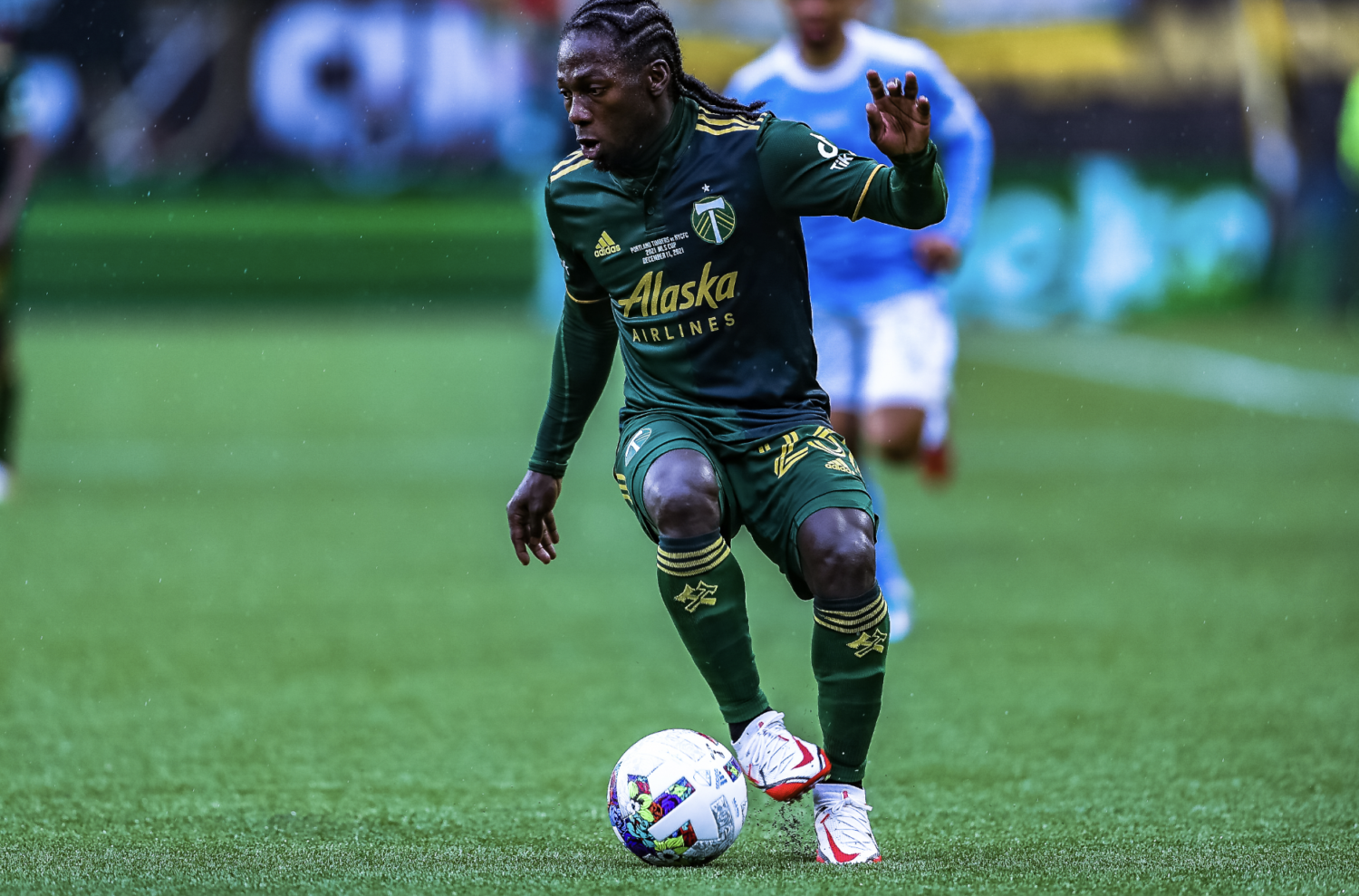
8. Minnesota United
This is year six for Adrian Health in St. Paul, and it feels like his team has stagnated somewhat: After fielding a very competitive team in 2019 and nearly making it to MLS Cup in 2020, the Loons regressed last year, struggling to score goals and getting handily dispatched by the Timbers in the first round of the playoffs.
The offseason, following that 3-1 loss, has been rather indifferent. The club re-acquired striker Luis Amarilla and brought in Honduran midfielder Kevin Arreaga, but lost captain Osvaldo Alonso and kept the bulk of last year’s side intact.
There’s certainly quality enough here to ensure that the Loons are professional and competitive each time they take the field, but aside from Argentinian playmaker Emanuel Reynoso, there are very few elite players in the squad.
Will that be enough to make a fourth straight playoff appearance? Possibly. Will it be enough to do serious damage in the playoffs should they get there? Unlikely. This team needs some pop, both up front and at center back, and until they get it, I’m betting on another regression this year.
Lineup: Miller, Gasper, Dibassy, Boxall, Métanire, Trapp (C), Dotson, Fragapane, Reynoso, Lod, Hunou
9. FC Dallas
Dallas appeared adrift at the end of last season when they fired manager Luchi Gonzalez and were on their way to selling Ricardo Pepi for a club-record fee. There were serious questions about the ownership’s commitment to winning.
Those questions, in one offseason, appear to have been answered. Dallas was aggressive from the outset, and ended up singing Alan Velasco from Independiente and committed huge amount of money to a trade for Paul Arriola. They also brought in a new coach, Nico Estevez, who will install a new 4-3-3 formation.
Best of all, perhaps, is the possibility of a full year of Paxton Pomykal in midfield. He has the ability to be a top MLS player if he stays fit, and a could be a creative hub behind what projects to be a lethal front three.
Defensively, there are more questions than answers: How much does Matt Hedges have left in the tank? Who is the starting goalkeeper? Overall, Dallas promises to be more interesting than they have been since the Oscar Pareja era.
Lineup: Maurer, Farfan, Martinez, Hedges (C), Nanu, Quignon, Servania, Pomykal, Arriola, Velasco, Ferreira
10. Vancouver Whitecaps
Between the pandemic and an MLS investigation into the club for its handling of allegations of misconduct against two former Whitecaps women’s team coaches, it has not been an easy few years for Vancouver supporters.
But, the way the team played at the end of last season under then-interim coach Vanni Sartini was one small bright spot. They went for it in the months following the sacking of Marc Dos Santos, and, improbably, reached their first postseason since 2017.
We’ll see whether they can keep that momentum going this year, and — particularly — whether they can play as aggressively over the course of an entire season and get away with it.
Their standout goalkeeper, Maxime Crepeau, is gone and, while Ryan Gauld is here for the entire campaign, the front office made few reinforcements to a team that, talent-wise, is not among the West’s best.
Lineup: Hasal, Dajome, Jungwirth, Veselinovic, Blackmon, Brown, Alexandre, Teibert, Gauld, Caicedo, White
11. Austin FC
There was, despite overwhelmingly poor results, plenty to like about Austin’s expansion season: They played cohesive attacking soccer in Josh Wolff’s system, they valued the ball, and they were clearly just a few pieces away from competing for a playoff spot.
Austin tried to get those pieces in the offseason, though the jury is very much out on whether they did enough work on last year’s roster to give themselves a chance to compete all the way into the fall.
Jhojan Valencia has arrived to play defensive midfield, while Ruben Gabrielsen and first round draft selection Kipp Keller will slot in the for the likes of the retiring Matt Besler in central defense. The defensive spine of the team was a major area of need, and Austin addressed it.
The problem is that none of those players have any MLS experience, and none appear to be the kind of proven, show-stopping defender that would improve the unit on day one. This team will score goals and stay in goals more than they did last year, but it doesn’t look like a playoff team on paper.
Lineup: Stuver, Kolmanic, Romaña, Gabrielsen, Lima, Ring (C), Valencia, Fagundez, Druissi, Dominguez, Djitte
12. Real Salt Lake
It was a wild finish to last season in Utah, in which the club saw its manager leave to become an assistant for one of its rivals, get bought by a new ownership group, and then make an improbable run to the Western Conference Final.
RSL got waxed by the Timbers in that game at Providence Park, but they did enough to land Pablo Mastroeni the full-time coaching job and generate a springboard of goodwill to take into 2022.
Now, the hard part. RSL lost its highest profile player in Albert Rusnak to Seattle, the same club their former manager Freddy Juarez joined in the middle of last year, and they haven’t really replaced him.
In fact, this team, which played plucky and brave soccer last year, but rarely very good soccer, hasn’t been improved much at all. Only one player has come in, and while more signings may be in the offing, RSL just isn’t going to scare anybody at the start of the year.
Mastroeni was mostly very aggressive tactically when he got the job last year, but that meant that his team was often wide open defensively. We’ll see if he decides to change tack with more to lose personally this go around.
Lineup: Ochoa, Brody, Glad, Silva, Herrera, E. Luiz, Ruiz, A. Julio, Kreilach, Rubin, Wood
13. San Jose Earthquakes
This looks set to be the final year of the great Matias Almeyda experiment in San Jose, which started with such promise in 2019 and has since fizzled into an acrimonious wait for the end.
Almeyda gave an interview where he ripped the club’s player-acquisition strategy in the offseason, and it’s true that San Jose was lapped in spending ambition by the likes of Dallas and Houston this offseason, not to mention the LAs and Seattles of the conference.
It’s also true that this ‘Quakes team has enough talent to be competitive — though it’s an open question whether Almeyda’s man-marking system, or whatever hybrid of it he uses, in whatever formation, helps or hinders them this season.
In Cade Cowell and Jeremy Ebobisse, there’s some exciting attacking talent. Offseason pickups like Jamiro Monteiro and Jan Gregus are proven in MLS. The roster build looks a lot like Colorado’s from a few seasons ago, even if the overall vision looks less cohesive.
It’s not hard to see San Jose causing some problems for teams this year. But it’s also not hard at all to see the whole project falling apart relatively quickly.
Lineup: Marcinkowski, M. Lopez, Alanis, Nathan, Thompson, Judson, Yueill, Cowell, Monteiro, Espinoza, Ebobisse
14. Houston Dynamo
It is very clearly a new era in Houston. The club is under new ownership, and that new ownership appears eager to spend and revitalize a team that has slid so far from relevancy in its city that even its biggest games last season were sparsely attended.
The first order of business was bringing in proven MLS sporting leadership in former goalkeeper Pat Onstad to run the front office and Paulo Nagamura to manage. The next order of business was spending big to acquire Paraguayan forward Sebastian Ferreira for a club-record fee, and there will likely be one or two more big name DP signings to come.
For now, though, this is still largely the team that trudged through last season under Tab Ramos, struggling on both sides of the ball, with effort week in and week out, and with a not inconsiderable talent deficit to boot.
Steve Clark, as Timbers fans can attest, will help in goal. The center back partnership anchored by Tim Parker looks a strength. But until the Dynamo bring in a pair of high-level attacking midfielders and a two-way center mid, the ceiling will be low.
Lineup: Clark, Lundqvist, Hadebe, Parker, Zeca, Vera, Rodriguez, Carrasquilla, Quintero, Picault, Ferreira

